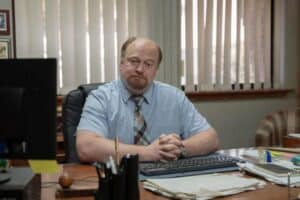The amended Bill could mean the end of Afrikaans because it included changes related to the powers of school governing bodies (SGBs) on admissions and language policies.

There were mixed opinions and feelings by citizens and experts about the place of Afrikaans in society. In recent years the language has come under fire by various departments and political parties.
Earlier this year, AfriForum slammed Education Minister Angie Motshekga for the new Basic Education Laws Amendment Bill (Bela), calling it a calculated attack on Afrikaans education and its speakers.
The amended Bill could mean the end of Afrikaans because it included changes related to the powers of school governing bodies (SGBs) on admissions and language policies.
@thecitizen_news Thando Magubane, Philadelphia Ngake, Travis Myburgh and Ruzaida Sheik discuss their feelings about Afrikaans in South Africa, 19 September 2022. @neilmccartney95 #afrikaans #voxpops #southafrica
♬ original sound – The Citizen
AfriForum’s head of cultural affairs, Alana Bailey, said the organisation would do everything possible to defend SGBs’ right to decide, among other, schools admission and language policy. “
It is the right of children to have access to mother language education. In recent decades, little has been done, apart from lip service, to make this right possible for more South African children in all indigenous languages.
“On the contrary, Afrikaans schools are constantly under pressure to Anglicise. The minister is making this an issue of race and – for the sake of convenience – ignores in her ideological battle the fact that Afrikaans speakers belong to all races.
A choice for Afrikaans education is not a choice to favour a particular race.”

Penelope Kekana said it was ridiculous for the government to attack Afrikaans because it was considered a white language.
“We do have white people in South Africa… who were born and bred here. Regardless of the fact that white people don’t originate from here it doesn’t take away we have white Africans,” she said.
Kekana said Afrikaners and Zulus were alike in terms of pride in their culture. “I don’t see why the government is mad at white people for having their language; it’s crazy,” she said.
Philadelphia Ngake said she was glad she understood Afrikaans. “Afrikaans doesn’t bother me. They should not take it out of schools. It is important to have different languages, including Afrikaans,” she said.
Travis Myburgh said Afrikaans was still relevant. “There are still a lot of Africans who spoke it and it’s the first language for many. It’s one of the true South African languages that evolved in this country,” he said, adding it should rather be made optional.

Ruzaida Sheik said she didn’t speak Afrikaans but understood it a bit. “It’s a difficult language, but it is useful because many people spoke Afrikaans.”
Prof Anne-Marie Beukes, Afrikaans expert from the University of Pretoria, said it wasn’t a white language. “Afrikaans is one of the languages protected in the constitution, in Article 6, but also in the Education Article, giving pupils the right to get education in their mother tongues where practically possible.”

Beukes said linguists believed it was an indigenous language.
“Afrikaans originated here in the southern tip of Africa with the influence of other languages.” She said like many other languages it was spoken in different dialects or variants.
“The fact is the majority of people who speak Afrikaans are brown. White people are among the minority of Afrikaans speakers. Afrikaans is not a white person’s language.”
ALSO READ: WATCH: Afrikaans nationality test – ‘Racist’ Ryanair accused of discrimination
Support Local Journalism
Add The Citizen as a Preferred Source on Google and follow us on Google News to see more of our trusted reporting in Google News and Top Stories.






